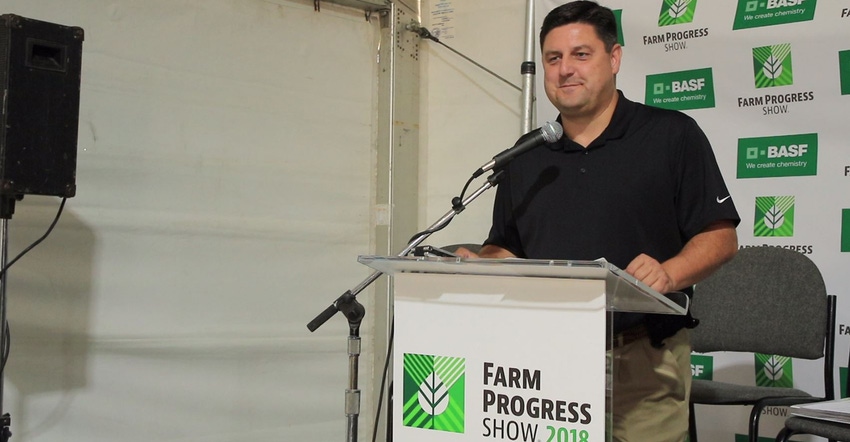
On average, Illinois landowners are selling ground for slightly less money than they did at the beginning of the year, according to a midyear survey of the Illinois Society of Professional Farm Managers and Rural Appraisers released Aug. 29.
David Klein, a real estate broker for Soy Capital Ag Services in Bloomington, relayed the key findings of the survey at the Farm Progress Show in Boone, Iowa.
“In the first half of the year, the value of excellent-quality farmland is down 2%, and average-quality land is down 1%,” he says. “According to our member survey, prices being paid for good- and fair-quality land prices are very similar from the beginning of the year.”
Excellent-quality farmland, Klein explains, will average over 200 bushels of corn per acre in a normal year. “Good” averages between 170 and 200. “Average” yields 150 and 170, while “fair” results in less than 150.
The survey’s respondents anticipate a $10 to $15 drop per acre in cash rents. However, the survey was sent out before the federal government announced relief for soybean growers impacted by new Chinese tariffs.
“We saw a 20% decrease in soybean prices, but we didn't see a 20% decrease in farmland values, and that's because land has other attributes other than just agriculture,” Klein says, citing renting land for wind turbines and solar farms.
“Things may have to come down on rents. However, I can tell you in the real world, that may not happen,” he adds.
As auctions have taken place across the state over the past three weeks or so, Klein says he’s observed acres of excellent-quality land sold in the mid-$12,000 range around Springfield, while land of the same quality in different parts of the state might sell for less.
Springfield has “always just been historically strong, with very competitive rents and very competitive farm operators,” he says.
Klein also reports that the survey’s respondents are selling to fewer farmers so far in 2018, with the percentage of farmland bought by farmers declining from 70% and 75% to 60% and 65%.
“That’s reflective of farmer's cash positions, and investors stepping in and taking the opportunity … to invest in farmland,” he says.
Klein says the number of acres his company sold in 2018 is average compared to the past five years.
“The good news is that we still have people looking to invest in farmland, and as long as we have demand for farmland, we're OK. Because that keeps the supply tight. That keeps land values strong,” he concludes.
About the Author(s)
You May Also Like




